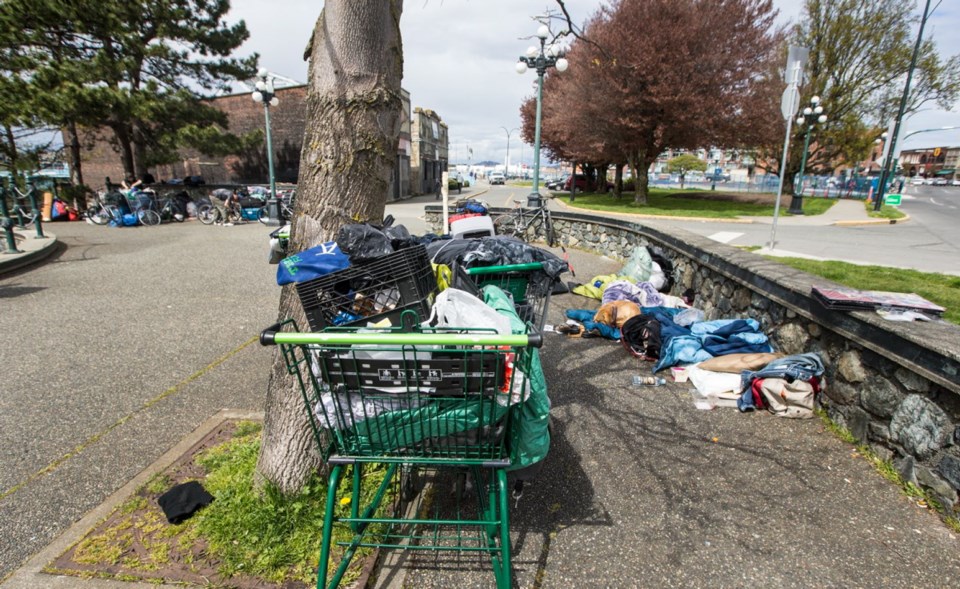City staff are seeking another $100,000 to clean up after campers in Victoria city parks because more people are using parks for shelter.
Victoria councillors in January reduced the special allocation for park cleanup to $200,000 from the recommended $300,000 in the hope that hundreds of new social housing units would result in reduced pressure on parks from homeless people.
But a report to council says that has not been the case.
“City staff and police have observed an increased level of sheltering activity in city parks over the past year.
On average this year the city is receiving 294 calls-for-service per month, representing an increase over the same period in 2016 and 2017,” city director of parks Thomas Soulliere writes in a report to council.
Mayor Lisa Helps said the numbers point to “the really fragile state of people who are housed.”
“It is a very, very expensive city and region for people to rent in and we can build all the new housing we want, [but] until we build new truly affordable housing that people can afford to live in, we’re not going to see a decrease of people living in parks. That’s the reality of being in an expensive city,” Helps said.
Soulliere says without the additional $100,000 for cleanup of camping sites, services would have to be reduced significantly with impacts including:
• risks to health and safety of those sheltering in parks and other park users
• damage to vegetation and ecosystems
• impacts on use and enjoyment of parks by other users
• impacts on park neighbours.
“The reality is that there are still people camping in the parks and the cleanup needs to be done,” Helps said.
Current cleanup and park-sheltering assistance costs about $25,000 a month for two full-time employees and about $5,000 for security, portable washrooms and supplies. Costs to the end of June have been $146,757 and funds are projected to be exhausted by the first week of September, Soulliere says.
Council has approved supplemental “one-time only” allocations for park cleanup since 2016 when costs totalled $341,000. It was $300,000 in 2017.
Soulliere had recommended $300,000 for this year but councillors during budget discussions in January reduced that by $100,000 in the hope that additional housing units would lessen the strain on parks.
Victoria has been wrestling with the issue of camping in parks since 2008 when a B.C. Supreme Court judge deemed it unconstitutional to deny a person the right to erect shelter in the absence of available shelter beds. City staff say the budget allocation is needed not only for cleanup of trash, abandoned goods and needles but also to keep some park washrooms open into the evening and provide extra security.
City regulations state that overnight shelter must be temporary, such as tents or shelter made from a tarp, plastic or cardboard. Shelter can only be erected from 8 p.m. to 7 a.m. from March to October, and 7 p.m. to 7 a.m. from November to February.
Tents and property cannot be left behind after 7 a.m. and items found might be impounded for collection by the owner, and garbage may be disposed of. Open flames and smoking are not allowed.
City staff clean up after campers in parks seven days a week. In addition, the funding supports extended washroom hours at Topaz Park (two portables) and Stadacona Park (one portable) as well as security patrols at Beacon Hill Park’s main washroom between 9:30 p.m. and 2:30 a.m., Soulliere says in his report.
The report says cleanup of camping sites can take a few minutes to several hours. While city staff follow a set route through higher-use parks each day, they also respond to calls from the public.
If approved, the money would come from contingency funds.



